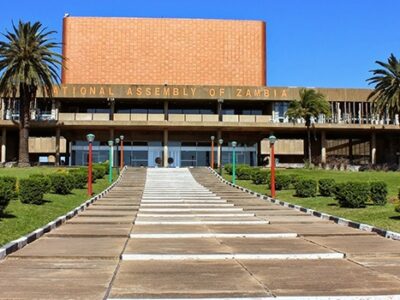As Zambia’s media landscape continues to expand with the proliferation of outlets across the country, this growth has introduced a diverse array of perceptions and voices.
However, it has also presented significant challenges in media regulation and accountability.
In this evolving context, independent media outlets have a crucial role in promoting self-regulation and upholding ethical standards.
The call for independent media to lead the charge in self-regulation is timely. With questions arising about the government’s ability to effectively regulate the media, independent outlets must take responsibility for their own actions.
This responsibility includes adhering to journalistic codes of ethics, transparently disclosing sources of funding and actively engaging in fact-checking and corrections.
Read More: Media under siege: How political agendas threaten truthful reporting in Zambia, by Elizabeth Muchoma
Kennedy Mambwe, Chairperson of the Media Self-Regulation Council of Zambia and Board Member of the Network of Independent Media Councils in Africa (NIMCA), emphasized the need to strengthen ethical journalism and address dilemmas threatening professional journalism in Zambia.
“There is a need to strengthen ethical journalism and critically address dilemmas threatening professional journalism in Zambia,” Mambwe said.
He identified self-censorship and political influence as major obstacles facing media houses, which are leading to compromised reporting and a polarized media environment.
“Political influence is distorting the quality of news content. Journalists must not view politicians merely as sources of news; they should also hold them accountable as subjects of public scrutiny,” Mambwe added.
Mambwe stressed that independent media outlets must recognize their crucial role in maintaining ethical journalism and take pride in being society’s watchdog.
“Through the promotion of self-regulation, the media is giving assurance to the public that they are professionals who understand their role.
Self-regulation will stand against intimidation, threats, and compromise. Journalists will work with a free mindset knowing there are no legal threats through punitive laws under statutory regulation,” he stated.
He highlighted the importance of maintaining strict professionalism and avoiding undue external pressure that could lead to compromised reporting.
Susan Tembo echoed this sentiment, stating that promoting self-regulation is essential for ensuring that the media remains a reliable and credible institution.
“We have a responsibility to the public, and we must take pride in being the guardians of truth and transparency,” Tembo noted.
As Zambia’s media landscape continues to grow, the call for stronger ethical standards and self-regulation is becoming increasingly urgent.
Media experts agree that by proactively addressing these issues, independent media can safeguard their role in society and maintain public trust.
Oversight and accountability are vital components of ethical journalism; the media must remain disciplined and professional to offer external oversight and accountability effectively.
If the media is regulated by external forces, it forfeits the moral authority to hold others accountable.
Professional discipline is essential for the media to fulfill its role in a democratic society.
WARNING! All rights reserved. This material, and other digital content on this website, may not be reproduced, published, broadcast, rewritten or redistributed in whole or in part without prior express permission from ZAMBIA MONITOR.












Comments